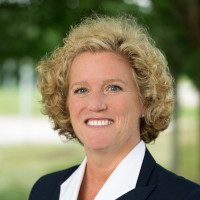The following is a guest article by Merrie Wallace, MN BSN, Chief Revenue Officer at Boostlingo
In today’s healthcare landscape, the shift to value-based care and expanding requirements from the Office for Civil Rights (OCR) have magnified the importance of language access. As patient outcomes have become the focus in an increasingly diverse patient population, interpretation becomes essential for driving improvements in care for limited English proficiency (LEP) patients. There has been a growing need for on-demand services and increased outsourcing to meet them, with many organizations turning to external vendors to fill these gaps.
While many vendors are quick to advertise around-the-clock interpreter availability, it’s important to ensure that these claims are backed by actual capacity and quality. There are distressing yet prevalent scenarios in which patients are unable to receive care due to the unavailability of interpreters. There are also situations where unqualified bilingual staff, who lack specialized training in medical interpretation, are called upon, jeopardizing patient health and removing providers from their current duties.
Consequences of Not Providing Language Access
- Non compliance with the OCR under the HIPAA and ACA
- LEP patients not receiving care
- Miscommunication with and worsened health outcomes for patients
- Frustrated staff and lost time
Finding the Right Partner for Health Equity
How can you safeguard your organization from having to turn LEP patients away, non compliance, and worsened health outcomes? Finding the right health equity partner for your language services is essential. An effective partner can help you put a comprehensive solution in place for providing language access to your patients. Especially in the event of needing an interpreter in real-time, having a partner can greatly improve your ability to provide care.
It’s important to evaluate the benefits of on-demand interpretation against the traditional on-site interpretation. Many healthcare organizations still rely on on-site interpreters that often require pre-scheduling, come with high costs, and have required minimums and cancellation fees. With the right partner for on-demand services, organizations can ensure that an interpreter is always available for patients at every step of their care journey—from intake to encounter, and even during financial services. This flexibility can greatly enhance the patient experience and ensure effective communication throughout their treatment process.
Below are seven topics to discuss and questions to ask about your current language services plan:
- Devices: What devices are in place for interpretation and are they improving your operational workflows?
- Capacity: Do your interpretation services monitor call trends, adjust staffing based on projections, and track recruitment to ensure capacity as per resource projections?
- Quality: How does your language partner remediate concerns about quality and how quickly? Do they vet and qualify their interpreters, how do they monitor interpreter performance, and is there a feedback system in place?
- Protocols: Are interpreters required to follow a set of protocols that prepare them for professional remote encounters?
- Languages: Do you have reliable access to interpreters with rare language combinations and specialized skill sets?
- Reporting: Can you access and monitor usage of your language services?
- Compliance: Are service delivery systems and interpreters HIPAA compliant?
Even though 100% fulfillment for language support is a challenge, partnering with a health equity expert that can help you answer these questions will help your organization provide better language access leading to better health outcomes.
 About Merrie Wallace, MN BSN
About Merrie Wallace, MN BSN
Merrie is the Chief Revenue Officer at Boostlingo, an interpretation technology company. She has applied her background in healthcare to executive positions at supply chain solutions, technology, and communication companies in the healthcare sector. She began her career as a charge nurse and transplant coordinator at Emory University Hospital in 1988.
Merrie has a Bachelor of Science in Nursing from the Medical College of Georgia at Augusta University and a Master of Science in Nursing Administration from Emory University.
Boostlingo is a proud sponsor of Healthcare Scene.













